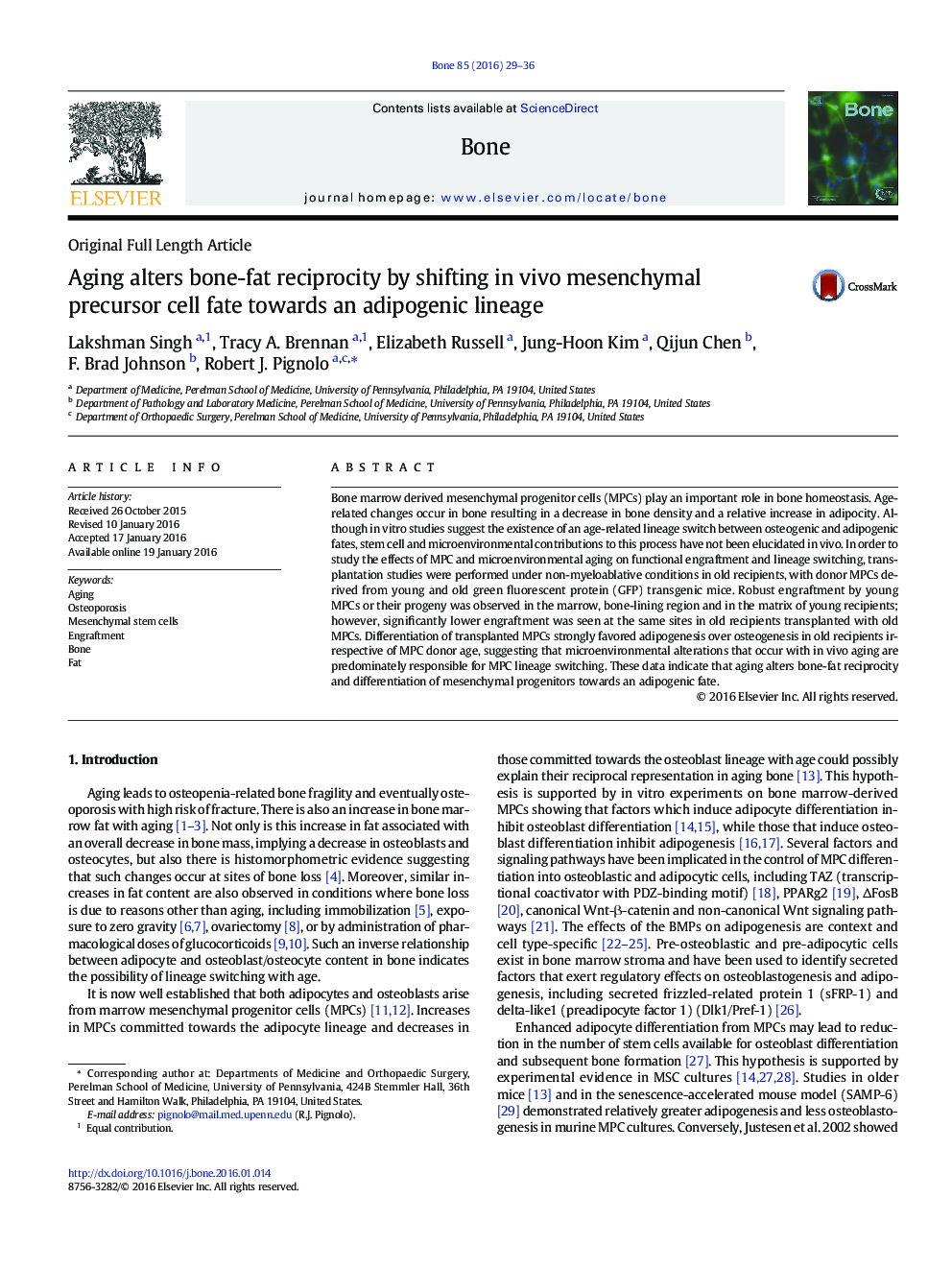| Article ID | Journal | Published Year | Pages | File Type |
|---|---|---|---|---|
| 2779125 | Bone | 2016 | 8 Pages |
•Mesenchymal progenitor cell (MPC) transplantation was performed in old recipient mice.•Robust engraftment by young MPCs or their progeny was seen in marrow, bone-lining regions and matrix of young recipients.•Significantly lower engraftment was seen at the same sites in old recipients transplanted with old MPCs.•Differentiation of transplanted MPCs strongly favored adipogenesis over osteogenesis in old recipients.
Bone marrow derived mesenchymal progenitor cells (MPCs) play an important role in bone homeostasis. Age-related changes occur in bone resulting in a decrease in bone density and a relative increase in adipocity. Although in vitro studies suggest the existence of an age-related lineage switch between osteogenic and adipogenic fates, stem cell and microenvironmental contributions to this process have not been elucidated in vivo. In order to study the effects of MPC and microenvironmental aging on functional engraftment and lineage switching, transplantation studies were performed under non-myeloablative conditions in old recipients, with donor MPCs derived from young and old green fluorescent protein (GFP) transgenic mice. Robust engraftment by young MPCs or their progeny was observed in the marrow, bone-lining region and in the matrix of young recipients; however, significantly lower engraftment was seen at the same sites in old recipients transplanted with old MPCs. Differentiation of transplanted MPCs strongly favored adipogenesis over osteogenesis in old recipients irrespective of MPC donor age, suggesting that microenvironmental alterations that occur with in vivo aging are predominately responsible for MPC lineage switching. These data indicate that aging alters bone-fat reciprocity and differentiation of mesenchymal progenitors towards an adipogenic fate.
